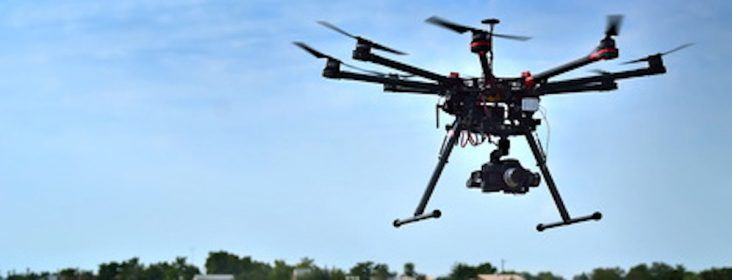Arkansas insurance chief says gifting drones for Christmas includes FAA registration
by December 17, 2015 8:33 pm 546 views

Flying with a drone for video and photo productions
If Santa happens to fly a drone down your chimney, Arkansas Insurance Commissioner Allen Kerry wants users to know new drones must be registered with the Federal Aviation Administration beginning on Dec. 21.
“Drones are a popular gift during the holiday season. Whether they are being used for personal or commercial purposes, there are a number of critical insurance issues to consider that include personal injury, property damage, or privacy,” Kerr noted Thursday (Dec. 17) in a press release. “Obtaining insurance for your drone for personal use isn’t difficult. I encourage Arkansans purchasing or receiving the gift of a drone to discuss coverage needs with their local insurance agent.”
http://insurance.arkansas.gov/index_htm_files/pr2015-12-17.pdf
Registration is free until Jan 20, 2016, when the FAA will begin issuing a $5 fee. Users will also need to check with their local cities and municipalities to see if there are local restrictions for the use of drones, or, unmanned air vehicles (UAV).
According to the Arkansas Insurance Department press release, the FAA has offered some guidelines for operating drones.
• Don’t fly higher than 400 feet and stay clear of surrounding obstacles.
• Keep the aircraft in sight at all times.
• Stay away from manned aircraft operations.
• Don’t fly within five miles of an airport unless you contact the airport and control tower before flying.
• Avoid flying near people or stadiums.
• Don’t fly an aircraft that weighs more than 55 pounds.
• Use caution when flying your unmanned aircraft.
Kerr’s office also offered the following tips for insurance coverage for drones.
• Using a private drone as a hobby is generally covered under a homeowners insurance policy (subject to a deductible) which typically covers radio-controlled model aircraft. This also applies to a renter’s insurance policy.
• Look at the contents section of your policy, or talk to your agent to see if your drone will be covered if it is lost, stolen or damaged.
• If your drone falls onto your car, damage to your car may be covered if you have a comprehensive coverage auto policy.
• A larger concern is liability for an accident caused by your drone. If your drone crashes into someone else’s vehicle or a person, the accident is your responsibility.
• If you have a homeowners or renter’s policy, generally the policy will cover liability for an accident caused by your drone. Check with your agent or insurer to verify your policy contains this important coverage.
In addition, the Arkansas Insurance Department is reminding Arkansas residents of two state laws relating to drones. Drones are prohibited from being used for for voyeurism as outlined in Act 293 of 2015 while they are prohibited from collecting critical information about infrastructures without consent based on Act 1019 of 2015.
According to the Arkansas Insurance Department, various insurance companies are developing policies to cover liability issues regarding drones. The department advises drone users to keep in touch with their insurance provider for more information.
DRONE SALES GROW
A May 2015 Business Insider Intelligence report suggested that the the market for civilian drones will grow at a compound annual growth rate of 19% between 2015 and 2020. The military market is predicted to grow at 5% during the same period.
Dallas-based RnR Market Research noted in a June report that commercial drone sales would rise from $609 million in 2014 to $4.8 billion worldwide by 2021.
“Police departments, the oil and gas industry, border patrol, and utilities are all using commercial drones. Units are used for agriculture. Vendors continue to improve the capabilities of these drone aircraft,” noted a report summary. “Their ability to support the commercial endeavors is increasing. Unmanned aircraft have fundamentally changed the accuracy of utility and oil and gas inspections. They are set to fundamentally change how agriculture is conducted.”
